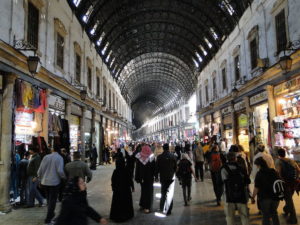Refugees in Their Own City
A report from Dnipro, where 45 were killed in a Russian attack on an apartment block. Rescue workers clear rubble from an apartment building which was destroyed by a Russian rocket attack on a residential neighborhood in the southeastern city of Dnipro, Ukraine, Sunday, Jan. 15, 2023. Photo: Evgeniy Maloletka / AP.
Rescue workers clear rubble from an apartment building which was destroyed by a Russian rocket attack on a residential neighborhood in the southeastern city of Dnipro, Ukraine, Sunday, Jan. 15, 2023. Photo: Evgeniy Maloletka / AP.
For a long time last year, Dnipro was considered one of the most calm cities in Ukraine.
“Here is some peaceful life again,” wrote prominent science fiction writer Oleh Ladyzhenskyi when he arrived in Dnipro from Kharkiv. “People and cars on the streets, shops are open, buses are running, there’s nothing exploding anywhere. It seems unnatural.”
Dnipro, one of Ukraine’s largest industrial cities, is relatively close to the war’s front line, which runs from Kherson in the south, through Donbas, to near Kharkiv in the north. The city has been a key logistical and humanitarian hub since Russia’s invasion on 24 February. But by the autumn, it felt as if people in Dnipro preferred to forget the chaos of the first days of the war.
In February and March, crowds of Dnipro residents flocked onto evacuation trains. Those who stayed behind checked the streets for devices that could guide Russian bombers, dismantled satellite dishes to avoid giving enemy rockets ‘something to aim for’, and reported their neighbours to police for turning on lights against the advice of the media, who suggested they could be used as signals to the enemy.
But the initial panic passed quickly. Many residents began ignoring the daily air raid alerts. Anti-tank devices and sandbag barricades were gradually removed from the city’s pavements. Soon enough, those who had left Dnipro for western Ukraine or to go abroad returned.
In the previously bare windows of the city’s dilapidated Institute of Mineral Resources, you can see linen drying as trucks of humanitarian aid are unloaded.
Of course, Russian rockets did hit the city from time to time. The first casualties were firefighters, who were stranded at the city’s bombed-out airport ahead of a repeat strike in April. Residents who lived near the city’s famous military and machine factories, such as the Yuzhmash aerospace plant, suffered from attacks on these strategic sites. And funerals, obituaries and notices about missing persons, which flooded the public space after each major battle, remained a constant reminder that life in Dnipro was peaceful only in comparison with other cities.
But any sense of peace was shattered on 14 January, when a Russian X-22 rocket – designed to target aircraft carriers – struck an apartment block on the Victory Embankment of the Dnipro river. Forty-five people, including six children, have been found dead, with many more missing – despite the efforts of rescue teams – in the ruins of the building. On 17 January, the city’s authorities announced that the search for survivors had been called off.
In recent months, Dnipro institutions have been offering displaced persons assistance that many think should be provided by the state.
The city’s central library has served as a help centre for people displaced from Mariupol, which is now under Russian occupation. Near the library, a once-empty building houses refugees from Lysychansk in eastern Ukraine, also under occupation. Dnipro’s Society for the Blind, which itself requires state assistance, has several dozen people from Kharkiv, Kramatorsk and Bakhmut staying on its premises. And in the previously bare windows of the city’s dilapidated Institute of Mineral Resources, you can see linen drying as trucks of humanitarian aid are unloaded.
The 14 January Russian strike has raised questions about these shelters. The residents of the apartment building that was hit—who have lost their homes, access to water, electricity and heating—are in need of long-term assistance. While many have been given temporary shelter in a nearby school, others still need help.
“Several neighbouring buildings will also have to be resettled. Where will they live? There’s nowhere to go in a city overflowing with displaced persons – to shelters and hotels, to mattresses on a floor, where a room has ten people in it,” said Stas Teplov, a volunteer and administrator of a local Facebook community group.
He added that Dnipro “is a city where shopping centres and paid parking lots are built, and I will be very surprised if people are given new apartments”.
The survivors of the Russian missile strike will be in a difficult situation, Teplov predicted. “Everyone will help them for a while. Then less, then even less […] then relatives will stop helping, someone will be alone with their misfortune and understand that now they are refugees in their city.”
The popular joke that ‘the hardest battles are on social media’ is no longer considered so funny in Dnipro.
Regina Adeeva, another Dnipro resident, thinks the state should provide housing for people who lose their homes. After all, people risk their lives to defend the state, she said. “Why is it only private initiatives that offer a temporary roof over your head, for example hotels?”
Many asked the same questions as dozens of people stepped up to help survivors of the apartment building. But with the announcement that the rescue operation at the destroyed building had ended, public attention has begun to switch to other topics—news from the front, including the besieged towns of Bakhmut and Soledar, political scandals and the death of Ukraine’s interior minister in a helicopter crash on 18 January.
But the stress of life in Dnipro remains. Local psychotherapist Serhiy Bolchunas told openDemocracy that there has been “a surge of panic attacks” in the city since the 14 January attack.
“When a person constantly sits reading negative news, reads a lot about a situation that they cannot control in any way, this creates a terrible internal tension,” Bolchunas said. It is a “completely destructive” tension, he continued, “because it takes away the opportunity to act even at the level where a person could at least do something”.
For Bolchunas, the stress of living through a war has direct consequences for individual health. “The hospitals are now overflowing with people with heart attacks, strokes, hypertension, ulcer flare-ups and psychosomatic diseases,” he said.
Eleven months into the Russian invasion, few give much thought to the people who end up in the hospital or the cemetery from the sheer stress of living through a war, rather than fighting on the frontlines or dying under enemy shelling somewhere else. The popular joke that ‘the hardest battles are on social media’ is no longer considered so funny in Dnipro.
Your support matters…Independent journalism is under threat and overshadowed by heavily funded mainstream media.
You can help level the playing field. Become a member.
Your tax-deductible contribution keeps us digging beneath the headlines to give you thought-provoking, investigative reporting and analysis that unearths what's really happening- without compromise.
Give today to support our courageous, independent journalists.






You need to be a supporter to comment.
There are currently no responses to this article.
Be the first to respond.